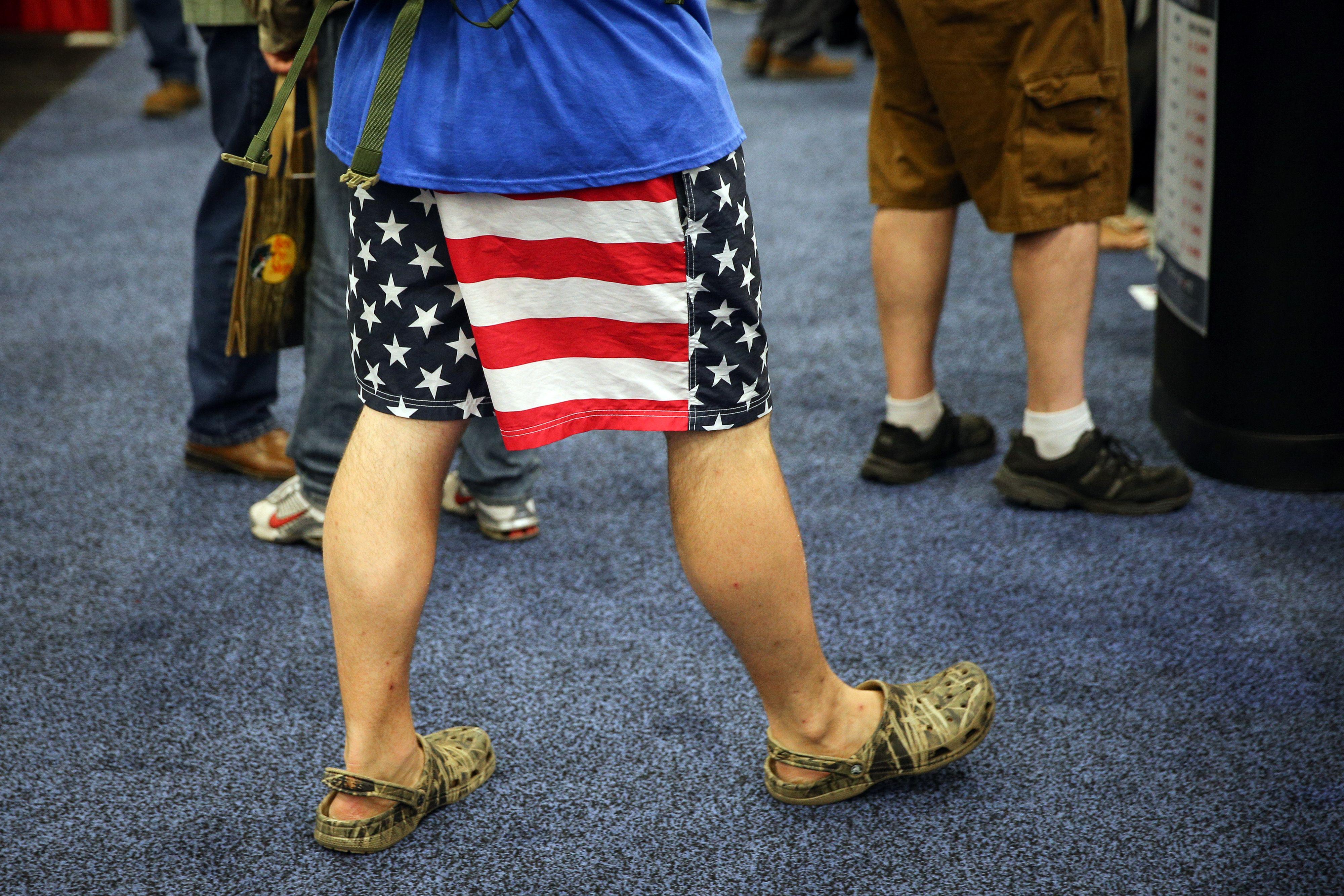Memorial Day weekend is here, summer has tentatively arrived and along with warmer climes in many areas, the season has revived a defining dog days debate: Should men wear shorts? According to a recent piece from MEL staff writer Tracy Moore, “We as a culture can’t stop debating where you can wear them, what length is appropriate, and of course, the perennial debate, whether or not cargo shorts should be banned universally in perpetuity.” But there’s also a sizeable subset of the population that refuses to engage in the debate by refusing to wear shorts at all. Dubbed the “Never Shorts” by Moore, she explains that these men “are hard pressed to ever slide on a pair of shorts unless it’s absolutely necessary for sporting, entering water, or hanging out water-adjacent.”
The majority of the Never Shorts apparently took their hardline stance due to the inherent uncoolness of shorts defined by the Tom Ford Decree of 2011: “A man should never wear shorts in the city. Flip-flops and shorts in the city are never appropriate. Shorts should only be worn on the tennis court or on the beach.” As Moore points out, despite their literal coolness, for most of the urbanites she interviewed shorts are strongly associated with the two epitomes of square fashion: dads and “douche-bro hacky sack type dudes who are ultra lame.” But another subset of the Never Shorts exists, those that attribute their jort reluctance to pure insecurity. “I don’t feel very comfortable in them,” a designer named Michael told Moore. “To be honest, I suppose it just boils down to self-confidence, and I don’t think there’s any scenario in which my unfit legs need to be showcased.”
Men cited pale, unsightly legs, poor physiques, and just plain lack of self-esteem—which suggests to me an interesting gap in the burgeoning body positive movement. As a woman named Jordan noted on a Facebook thread on shorts that Moore created, “Women overcome immense socialized body consciousness to wear shorts/skirts/dresses while men are deterred by often unexamined reasons.” Of course, a part of men’s reluctance—or inability—to examine their own refusal to wear one of the most ubiquitous (and functional!) items of clothing can be squarely chalked up to privilege. Men are generally permitted to ignore both trends and seasonal norms and dress the same from toddlerdom into middle age without much scrutiny. Just look at Mark Zuckerberg’s uniform of hoodies and jeans.
But that same luxury also means that rather than unpacking their own unhealthy notions around their bodies, a fair amount of men would rather hide their legs behind jeans even in the sweltering summer heat. To be sure, there are objectively more important reasons to support the expansion of the body positivity movement beyond the corporate platitudes that currently define it: Fat, disabled, and nonwhite bodies face far more scrutiny than the pale gams of the Never Shorts movement. But Never Shorts should perhaps take a cue from the body-positivity movement and the incredible work that women do to feel comfortable in their bodies and start interrogating the standards they impose on both themselves and others’. Preferably before they suffer a heat stroke.
